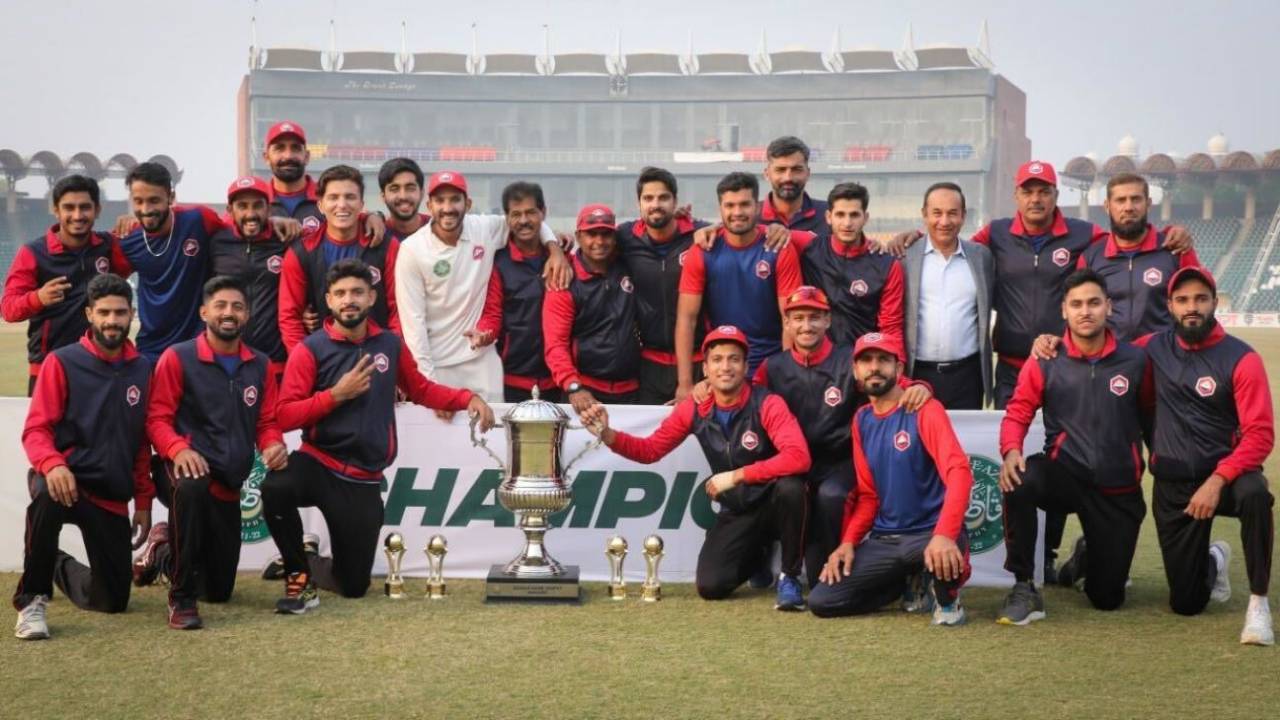The five-team tournaments will feature the top 150 players in the country, and each tournament will be in addition to the existing tournament in the format
The tournaments will feature the top 150 players in the country • PCB
The PCB wants to introduce three new domestic tournaments – one for each format – from next season as it bids to narrow what it sees as a significant gap between the standard of domestic cricket and the international game.
The five-team tournaments – called Pentangular – will be played in each format and feature the top 150 players in the country, ostensibly an elite layer of competition where the country’s best players take each other on. Each tournament will be in addition to the existing tournament in the format; a first-class event on top of the Quaid-e-Azam and President’s Trophy; a 50-over tournament in addition to the National One-Day Cup; a T20 event as well as the long-running National T20 Cup.
Plans currently are at a formative stage with little beyond the broader details. But ESPNcricinfo understands the PCB chairman Mohsin Naqvi has directed various PCB departments to ensure these tournaments are launched in the next domestic season. The prompt for these tournaments was an internal research the board conducted when Naqvi took over as chairman earlier this year, after a period of administrative flux which had seen Ramiz Raja, Najam Sethi and Zaka Ashraf come and go as board heads.
The tournaments will not be franchised out – they will be owned and operated by the PCB. The five teams will not be based on geographical regions. Instead, they will be newly created entities with their own management and coaching set-ups. The tournaments are likely to be played on a double league basis. Selection for the teams will be done in part by the PCB’s selection committee, who will distribute a set number of players across the teams, while the rest of the roster will be picked by the team’s managements.
Pentangular tournaments are not new to Pakistan domestic scene, and have been played under that name as recently as 2016. These tournaments are being pitched with a new purpose, however; as one official put it, to “create a layer between domestic and international cricket to reduce the quality gap”.
One of the benefits the PCB foresees is more first-class games, deeper into a season, for the best players. In the recent past, players have finished the first-class season by December (this season the President’s Trophy ended in February) and with Pakistan often not playing a Test between the end of their season and July-August, a Pentangular offers the opportunity for players to plug that gap.
But when exactly such a tournament could be played will be a slightly bigger headache. Pakistan’s domestic season is already juggling two first-class tournaments, a one-day cup, a T20 tournament and the PSL. Next season is packed with international commitments: Pakistan host Bangladesh and England for Tests, an ODI tri-series before the Champions Trophy and then the PSL. Already the Champions Trophy and Ramadan taking place in March have meant the PCB wanting to move the PSL to a later window, where it plays out concurrently with the IPL.
It could result in the expansion of their basic season, into May potentially. And it will have to bring forward long overdue upgrades to a number of stadium facilities around the country. More tournaments will mean moving beyond the reliance on Lahore, Karachi, Rawalpindi and, to a lesser degree, Multan as venues.
If it does go ahead, it will constitute yet another alteration to a domestic system that has undergone near-annual tinkering or rejigging or revamping since it began in the early 1950s. The season just gone saw significant changes to the Quaid-e-Azam trophy and the reintroduction – after the absence for a few seasons – of department sides. And for all the change, a new pentangular first-class tournament will not look too different to the six-team Quaid-e-Azam trophy that was in place for four seasons from 2019 – and brought in for similar reasons of wanting to prioritise quality over quantity.
Osman Samiuddin is a senior editor at ESPNcricinfo


